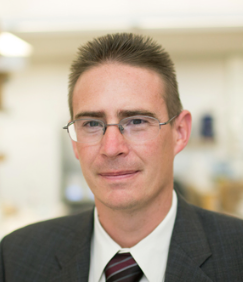Adam Arkin
Professor
Department of Bioengineering
University of California, Berkley
Seminar Information

Many key phenotypes we would like to engineer into organisms are multigenic and have complex dependencies on host physiology and environmental parameters. Examples include microbes designed to for production of biofuels in from variable and dirty feedstocks, to organisms engineered to support plant growth or human health. To discover the genetic determinants of both survival and activity in complex natural environments and thence to stack these traits we have adapted and scaled a number of high throughput genetic technologies. For discovery, we have developed and applied approaches ranging from a novel approach to bar-coded insertion mutagenesis, through genetic interaction mapping using CRISPRi, to extreme QTL mapping and shown how to map the significance of every gene in an organism to survive and activity in diverse environments. For some of these we have demonstrated the utility across a wide diversity of microorganisms. We then apply multiplex engineering methods to optimize phenotypes by expression engineering of multiple genes. Here we demonstrate the use of this workflow to dissect traits across diverse bacteria and fungi and to engineer better fuel production in inhibitory hydrolysates for bacterial and fungal biofuel strains.
Adam Arkin is the Dean A. Richard Newton Memorial Professor in the Dept of Bioengineering, University of California, Berkeley and acting Biosciences Area Deputy for Science Coordination at the Lawrence Berkeley National Laboratory. He and his laboratory develop experimental and computational technologies for discovery, prediction, control and design of microbial and viral functions and behaviors in environmental contexts. He is the chief scientist of the Department of Energy Scientific Focus Area, ENIGMA (Ecosystems and Networks Integrated with Genes and Molecular Assemblies, http://enigma.lbl.gov), designed to understand, at a molecular level, the impact of microbial communities on their ecosystems with specific focus on terrestrial communities in contaminated watersheds. He also directs the Department of Energy Systems Biology Knowledgebase (KBase) program (http://kbase.us) is an open platform for comparative functional genomics, systems and synthetic biology for microbes, plants and their communities, and for sharing results and methods with other scientists. Finally, he is the Co-Director of the Berkeley Synthetic Biology Institute which brings together U.C. Berkeley and Lawrence Berkeley National Laboratory Scientists with Industry Partners to forward technology and applications for sustainable biomanufacturing
